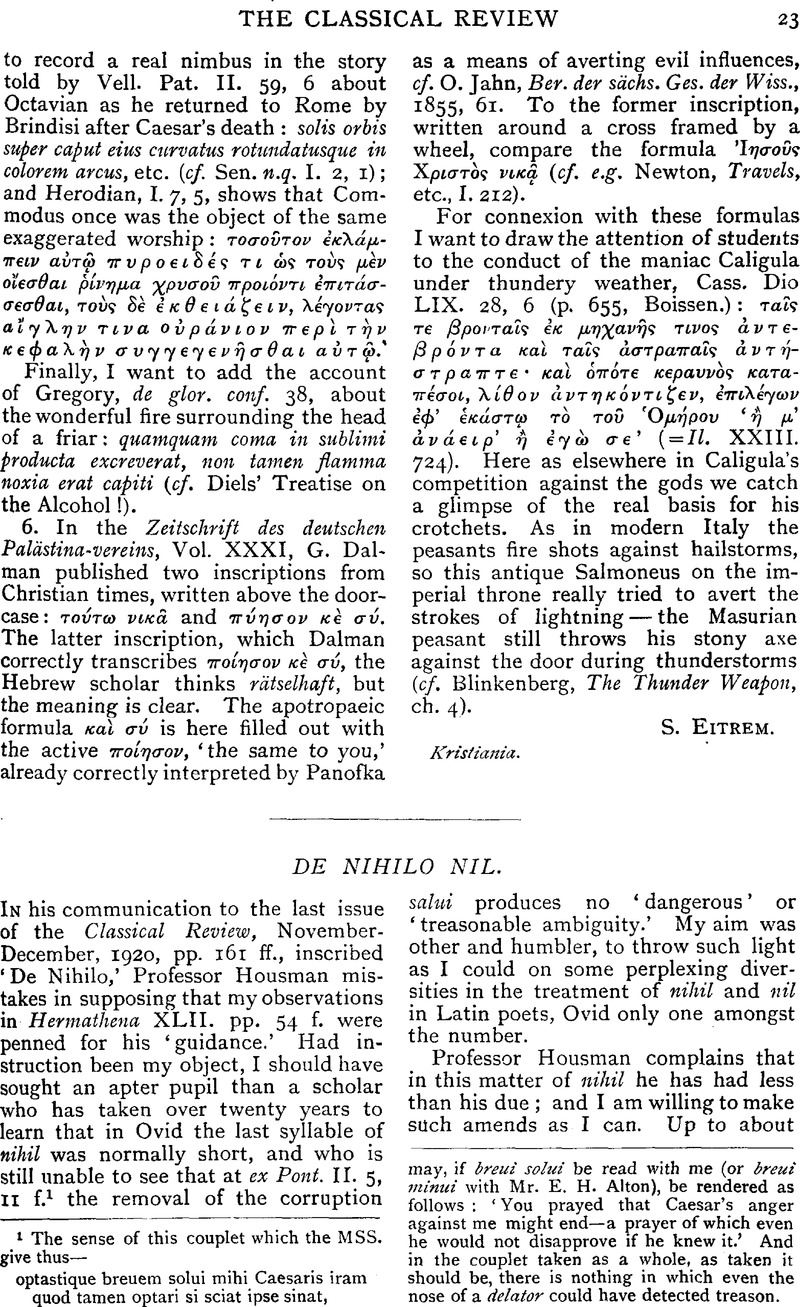No CrossRef data available.
Article contents
De Nihilo Nil
Published online by Cambridge University Press: 27 October 2009
Abstract

- Type
- Original Contributions
- Information
- Copyright
- Copyright © The Classical Association 1921
References
page 23 note 1 The sense of this couplet which the MSS. give thus— optastique breuern solui mihi Caesaris iram quod tatnen optari si sciat ipse sinat, may, if breui solui be read with me (or breui minui with Mr. E. H. Alton), be rendered as follows: ‘ You prayed that Caesar's anger against me might end—a prayer of which even he would not disapprove if he knew it.’ And in the couplet taken as a whole, as taken it should be, there is nothing in which even the nose of a delator could have detected treason.
page 24 note 1 On this I wrote in Hermathena, I.c. ‘It is now twenty-seven years since I protested against that dictum’ (Lachmann's), ‘as others had done before me. And it gratifies me to observe that Professor Housman's attitude has passed from acceptance to doubt (Class. Quart. 1916, p. 138) and from doubt to rejection (Class. Rev. 1919, p. 57).’
page 24 note 2 He complains that I did not state this explicitly. It did not occur to me that where nihil gave a dactyl in the first foot a reader could imagine that the second foot began with a consonant.
page 24 note 3 What he had spoken of there was ‘the rule which Servius tried to formulate.’ The change in his phrasing is slight but instructive.
page 24 note 4 ‘This rickety regiment,’ ‘ forty eight precarious examples’ (Mr. Housman).


